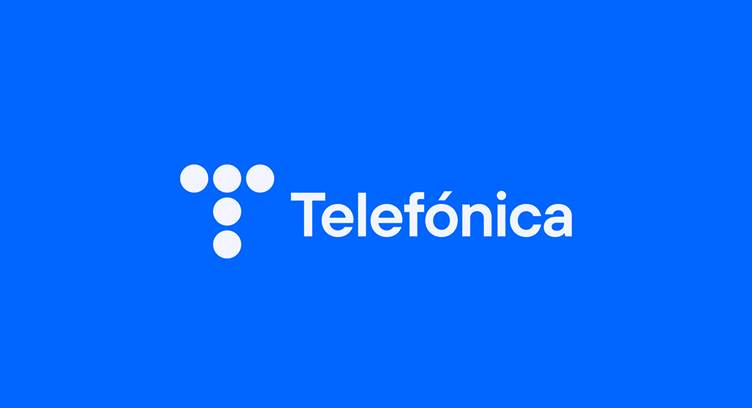Telefónica has reduced its operational CO2 emissions (scopes 1 and 2) by 80% since 2015 through the introduction of more efficient technologies and the use of renewable energy at 100% of its facilities in Europe, Brazil, Chile and Peru.
In this way, the telco has achieved the target set for 2030 eight years ahead of schedule, as stated in its Consolidated Management Report 2022 .
With the achievement of this and other objectives, the Group meets its 2022 targets, and strengthens its ESG (Environmental, Social, Governance) commitment. Telefónica is aligned with the principles of the United Nations Global Compact and the Sustainable Development Goals (SDGs).
Greener
Telefónica is aligned to environmental SDGs (7, 11 and 13), decoupling its growth from its environmental footprint and helping to decarbonise the economy.
To help limit the global temperature increase to 1.5ºC, and a decade ahead of international agreements, Telefónica has set the goal of achieving zero net emissions by 2040, including its value chain, and is the first telco to be validated by the Science-Based Targets initiative (SBTi) under the new Net-Zero standard. In fact, the total decrease in emissions including the three scopes stands at 45% over the last seven years.
This target is not only compatible with network expansion and quality of service, but also allows Telefónica to be more competitive. Thanks to the implementation of more than 100 energy efficiency and management projects, the company has managed to reduce energy consumption by 7.2% compared to 2015, despite the fact that the traffic managed by its networks has increased 7.4 times.
Telefónica’s global electricity consumption comes from 82% renewable sources, with a target of 100% by 2030.
To contribute to the digitalisation of its customers, Telefónica, as an integral partner of numerous companies, offers its Eco Smart solutions to help decarbonise the economy. Thanks to the efficiencies generated by connectivity and digital services, the company helped customers avoid 81.7 million tonnes of CO2 by 2022.
The strategy and actions implemented have allowed the telco to continue to lead in this area and to be part of the A List of the CDP Climate Change index for the nineth consecutive year.
In addition, the company is working to be a Zero Waste company by 2030 through eco-design, circular criteria purchasing, reuse and recycling. In 2022, Telefónica recycled 98% of its waste and reused 4.4 million electronic equipment from operations, offices and customers.
More inclusive
As a global telecommunications operator, Telefónica focuses its key actions on SDG 9 by deploying sustainable, resilient, and quality infrastructures and services with the aim of connecting the highest number of people so that they can benefit from the advantages of digitalisation. Following the main international frameworks, in recent years the Group has demonstrated an annual contribution of at least €95 billion to the Sustainable Development Goals (SDGs).
Telefónica continues leading the top position in the world ranking for FTTH deployment (excluding China) with a total of 168.1 million UUII passed by December 2022, 5% more than in the same period of the previous year, of which a total of 64.5 million (+16%) pass through the company’s own network.
The Group has 383.1 million accesses worldwide, a year-on-year growth of 3.8%, and broadband coverage for 80-99% for rural population and remote areas in its main markets.
In 2022, Telefónica contributed 45,978 million euros to the GDP of the key countries in which it is present and 7,669 million euros in total tax contribution. In other words, for every 100 euros of turnover, the company spends 19.2 euros in taxes.
In addition, the company is a driving force of progress and job creation in the areas where it operates. Telefónica generates almost 100,000 direct jobs and more than a million additional indirect and induced jobs, so that for every person on its payroll, an additional 9.8 jobs are created in the countries where it operates. The group also contributes to strengthening local economies by supporting key sectors with 83% of purchases from local suppliers, 57% of which are SMEs.
Telefónica is aware that having access to the network is not enough. It is also necessary to address the digital divide by guaranteeing inclusion through training in digital skills and programmes that promote employability. To this end, Telefónica and its Foundation offer different projects within its global Innovation and Talent Hub, such as the new Universitas campus, its corporate university, Escuela 42 and Conecta Empleo.
José María Álvarez-Pallete, Chairman and CEO of Telefónica
We are living in extraordinary times, marked by the need to accelerate the digital, energy, green and educational transitions, among others. These transformations go hand in hand and are supported by powerful technologies like the Internet of Things, artificial intelligence, the metaverse, web3 and crucially, telecommunication networks. People-centric digitalisation helps us to progress while respecting the limits our planet. Telefónica’s mission to ‘make our world more human, by connecting lives’ is not just an inspiring principle, but a company-wide commitment to sustainability.






















